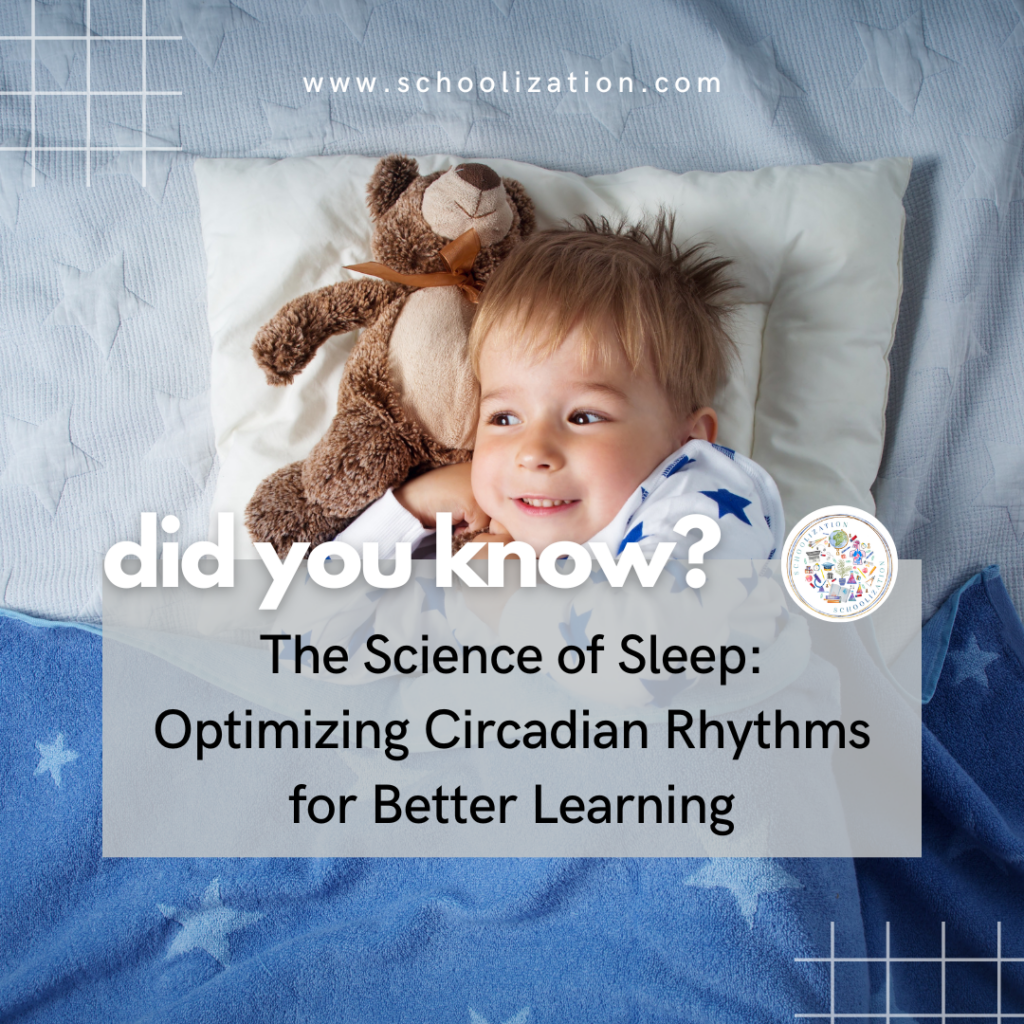In the hustle and bustle of modern life, amidst the screens and schedules, one fundamental aspect often overlooked is the role of circadian rhythms in shaping our children’s learning experiences. The human body operates on a finely tuned internal clock, known as the circadian rhythm, which regulates various physiological processes, including sleep-wake cycles. Understanding and optimizing these rhythms can significantly impact a child’s cognitive development and academic performance.
What Are Circadian Rhythms?
Circadian rhythms are the natural, internal processes that regulate the sleep-wake cycle, repeating roughly every 24 hours. Governed by the body’s master clock, the suprachiasmatic nucleus (SCN) in the brain, these rhythms influence not only sleep patterns but also hormone release, body temperature, and metabolism. They respond primarily to light and darkness, signaling the body when it’s time to sleep and when to wake up.
The Link Between Circadian Rhythms and Learning
Circadian rhythms, often referred to as our internal biological clock, govern a multitude of physiological processes within the human body, with perhaps none more impactful than their influence on learning and cognitive function. These rhythms orchestrate the ebb and flow of our sleep-wake cycle, hormone release, body temperature, and metabolic activity, all of which play crucial roles in shaping our cognitive abilities.
At the heart of this intricate system lies the suprachiasmatic nucleus (SCN), a small cluster of cells in the hypothalamus that serves as the body’s master clock. The SCN receives input from specialized light-sensitive cells in the retina, allowing it to synchronize with the external environment and adjust our biological rhythms accordingly. This synchronization is essential for maintaining optimal cognitive function, as it ensures that our physiological processes are aligned with the demands of our daily activities.
One of the most significant ways in which circadian rhythms impact learning is through their regulation of sleep patterns. Sleep is a vital component of memory consolidation, the process by which newly acquired information is integrated into long-term memory stores. During sleep, the brain undergoes a series of complex processes that facilitate the transfer of information from short-term to long-term memory, a crucial step in the learning process.
Research has consistently shown that disruptions to circadian rhythms, such as irregular sleep schedules or exposure to artificial light at night, can impair memory consolidation and hinder learning. For example, individuals who experience chronic sleep deprivation or irregular sleep patterns often exhibit deficits in attention, memory, and cognitive performance. In children, whose brains are still developing, these effects can be particularly pronounced, impacting their ability to focus, retain information, and perform well academically.
Optimizing Circadian Rhythms for Learning
So, how can parents and educators harness the power of circadian rhythms to enhance children’s learning? Here are some strategies:
Establish Consistent Sleep Patterns: Encourage children to maintain a regular sleep schedule, going to bed and waking up at the same time each day, even on weekends. This helps synchronize their circadian rhythms and promotes better sleep quality.
Create a Sleep-Conducive Environment: Ensure that the bedroom is dark, quiet, and comfortable to promote restful sleep. Limit exposure to screens and electronic devices before bedtime, as the blue light emitted can disrupt circadian rhythms.
Encourage Outdoor Activities: Exposure to natural light during the day helps regulate circadian rhythms and promotes better sleep at night. Encourage children to spend time outdoors, especially in the morning, to receive ample sunlight.
Limit Stimulants Before Bed: Avoid giving children caffeinated beverages or sugary snacks close to bedtime, as these can interfere with sleep onset and disrupt circadian rhythms.
Promote Relaxation Techniques: Teach children relaxation techniques such as deep breathing exercises or bedtime yoga to help them wind down before sleep. A calm bedtime routine signals to the body that it’s time to prepare for rest.
Monitor Screen Time: Limit screen time, especially in the hours leading up to bedtime. The blue light emitted by screens can suppress melatonin production, disrupting circadian rhythms and making it harder to fall asleep.
Circadian rhythms play a crucial role in shaping children’s learning and cognitive development. By understanding and optimizing these natural cycles, parents and educators can support academic success and overall well-being in children. Establishing consistent sleep patterns, creating a sleep-conducive environment, and promoting healthy lifestyle habits are key steps in maximizing the benefits of circadian rhythms for learning. So, let’s prioritize sleep hygiene and embrace the power of circadian rhythms to unlock our children’s full potential.
Have any tips on Optimizing Circadian Rhythms for Better Learning to share with the community? We’d love to hear them! Leave a comment below or send us an email!

